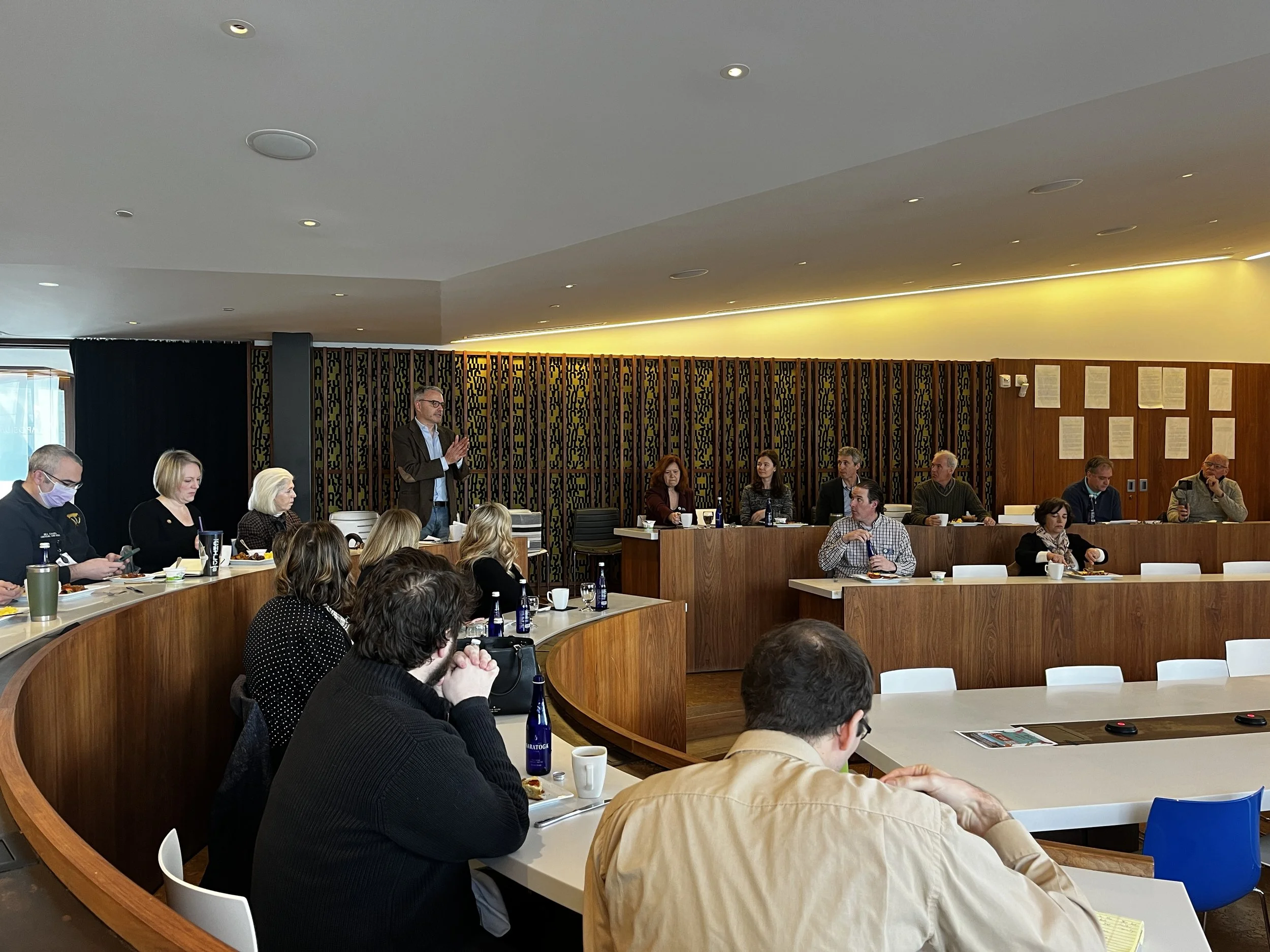Insights from the SWVT Chamber 2024 Mid-Session Legislative Breakfast
The recent Legislative Breakfast hosted by the Southwestern Vermont Chamber of Commerce and held on Monday, February 26th at Bennington College’s Center for the Advancement of Public Action (CAPA), provided a comprehensive look into the pressing issues facing Vermont's communities. From housing to education, taxation to transportation, the event was a platform for legislators to share updates and engage with concerns raised by attendees. Here are the key takeaways from the event:
Education and Literacy Remain Key Priorities: Senator Brian Campion highlighted the critical role of literacy in addressing dropout rates and mental health concerns among students. With a focus on reforming Act 250 and addressing assorted taxes, the education committee's efforts underscore the need for comprehensive support systems within schools.
Infrastructure Challenges and Funding Constraints: Representatives discussed the pressing need for infrastructure development, particularly in corrections facilities and transportation projects. Funding challenges, exacerbated by recent flooding events, pose significant hurdles to addressing these needs. Moreover, budgetary reductions across various committees highlight the necessity for innovative funding solutions.
Prioritizing Health Care and Social Services: Legislators emphasized the importance of addressing health care costs and staffing shortages in health care facilities. Representative Dane Whitman shed light on the Human Services committee's priority to tackle emergency housing and support unsheltered individuals, highlighting the interconnectedness of health care, criminal justice, and education systems.
Sustainable Agriculture and Forestry Initiatives: Committee members outlined legislative efforts to address issues such as timber theft, food resiliency, and pesticide regulations. Proposals to expand processing capacity for small poultry farmers and promote outdoor recreation underscore Vermont's commitment to sustainable agricultural practices and environmental conservation.
Balancing Economic Growth with Community Needs: Attendees raised concerns about increasing the state's tax base and attracting businesses while ensuring the welfare of existing residents. Representatives emphasized the importance of meeting the needs of diverse populations, including individuals with disabilities, and highlighted ongoing efforts to attract businesses through initiatives like the Grow program. However, challenges such as housing shortages and quality education remain critical factors in fostering sustainable economic growth.
The SWVT Chamber Legislative Breakfast provided valuable insights into the multifaceted challenges facing Vermont communities. From education and infrastructure to health care and economic development, legislators and attendees alike demonstrated a commitment to addressing these issues collaboratively. Moving forward, continued dialogue and innovative solutions will be essential in navigating Vermont's path toward a resilient and prosperous future.

